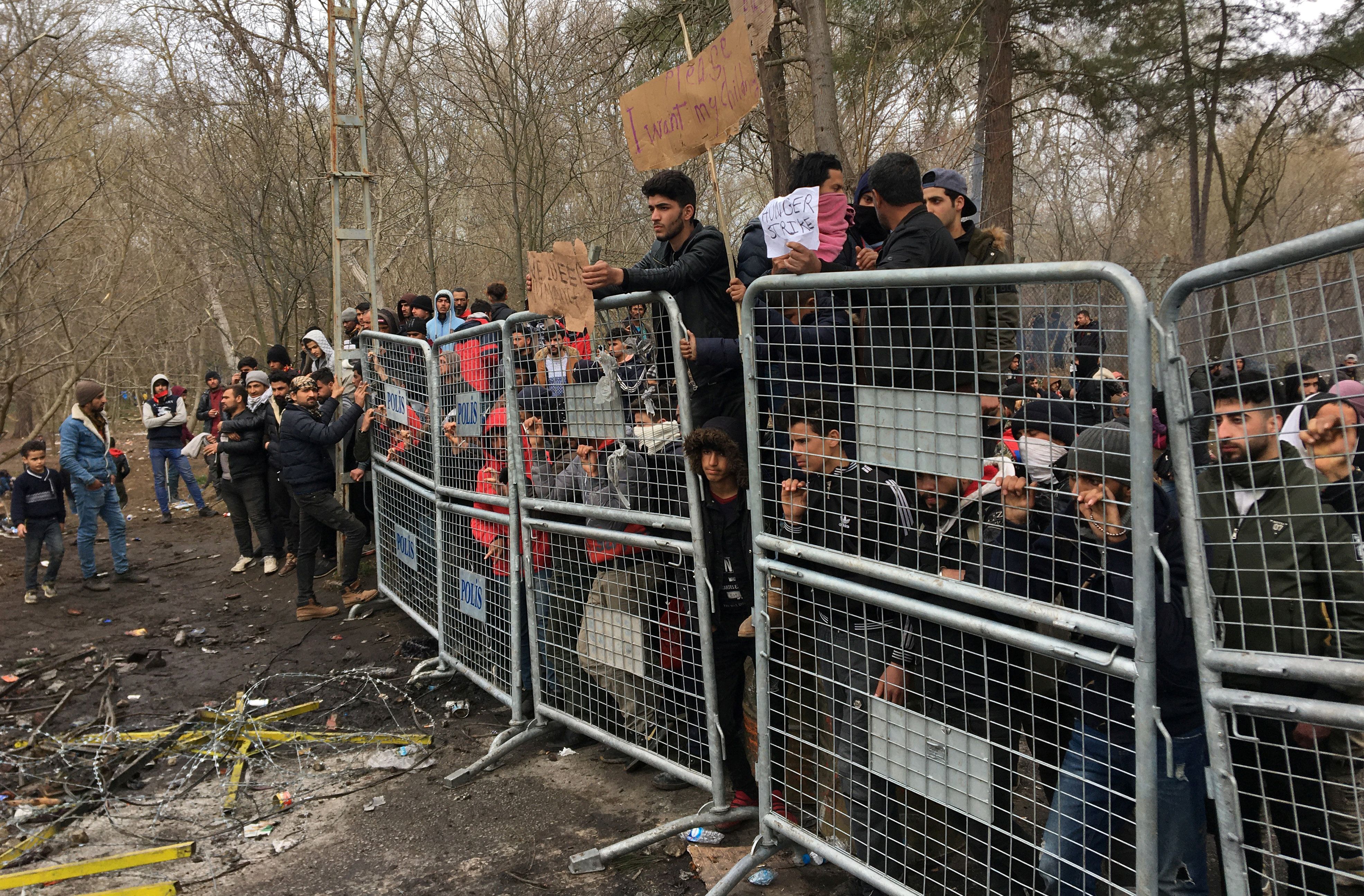March 05, 2020
Fighting has pushed the Syrian province of Idlib to the breaking point. Russian-backed Syrian forces, Syrian rebels trapped inside the city, and Turkey's military are all directly involved, and the stakes in this conflict have risen dramatically in recent days as the conflict threatens to generate a severe humanitarian crisis that sends shock waves through Turkey toward Europe.
Turkey's President Erdogan and Russia's President Putin reportedly agreed on a ceasefire on Thursday, but previous such deals have fallen apart.
So, what do the big players in this conflict want?
If you're Syria's President Assad, you want your country back. Regaining full control of Syria means forcing the total surrender of rebels in Idlib, the last city your forces don't control. You also want your Russian sponsor to force Turkey's army out of your country.
If you're Turkey's President Erdogan, you want Russia, the big military power in Syria, to stop helping Assad attack Idlib. You want a ceasefire and a deal, because you already have 3.6 million foreign refugees, most of them Syrian, living inside your country, and the fall of Idlib might send a million more scrambling in your direction. You also want financial help from Europe to handle all these refugees and EU political help to get the result you want in Syria. To get this help, you'll threaten to tear up the deal you made with Europe in 2016 to house Syrian refugees in exchange for European cash. To show you're serious, you'll nudge a few thousand of them toward European shores.
If you're Greece's government, you want Erdogan to stop pushing refugees toward your borders. Protests have erupted against the refugees you're already sheltering. You want Europe to send money and troops right now to help keep your borders closed during this time of emergency.
If you're the leadership of the European Union, you desperately want to avoid a repeat of the migrant crisis of 2015-2016, which turned the bloc's politics upside down. You want Erdogan to know that you understand Turkey's problem and are ready to help with more money—but without appearing to give in to blackmail in ways that would encourage Erdogan to blackmail you some more. You want Greece to know that you're ready to help this frontline member state secure its borders. And you want this problem to go away so you can deal with other pressing problems—like Coronavirus and a slowing European economy.
If you're Vladimir Putin, you want to make the most of the Idlib problem. You want your ally Assad in control in Syria. You want to keep Erdogan in his place. But perhaps most of all, you're happy to see a new wave of refugees further poison relations between NATO member Turkey and the rest of Europe. You want Europe to have to spend more money on this problem, and you want a new migrant crisis—or better yet, the continuing threat of one—to poison the political atmosphere among and inside European countries.
Finally, if you're a refugee, or if you're trapped inside Idlib as bombs fall, or if your family has been living in a tent city inside Turkey for the past three years, you want hope. You want to escape hunger and constant fear. You want to believe that one day, you and your children will have a chance at a normal life.More For You
America’s new National Security Strategy confirms what Europeans have feared for months: Washington now sees a strong, unified European Union as a problem to be solved, not an ally to be supported.
Most Popular
Sponsored posts
The power of sports
What's Good Wednesdays
What’s Good Wednesdays™, December 10, 2025
Walmart sponsored posts
Walmart's $350 billion commitment to American jobs
In this episode of Tools and Weapons, Microsoft Vice Chair and President Brad Smith sits down with Ed Policy, President and CEO of the Green Bay Packers, to discuss how purpose-driven leadership and innovation are shaping the future of one of the world’s most iconic sports franchises. Ed shares how technology and community-focused initiatives, from Titletown Tech to health and safety innovations on the field, are transforming not just the game of football, but the economy and culture of Green Bay itself. He explains how combining strategic vision with investment in local startups is keeping talent in the Midwest and creating opportunities that extend far beyond Lambeau Field.
Subscribe and find new episodes monthly, wherever you listen to podcasts.
Members of security forces stand guard outside a polliong station, a week late in a special election, after the local governing party kept voting closed on election day, amid accusations of sabotage and fraud, in a presidential race still too close to call as counting continues, in San Antonio de Flores, Honduras, December 7, 2025.
REUTERS/Leonel Estrada
More than a week after Hondurans cast their ballots in a presidential election, the country is still stuck in a potentially-dangerous post-election fog.
© 2025 GZERO Media. All Rights Reserved | A Eurasia Group media company.
